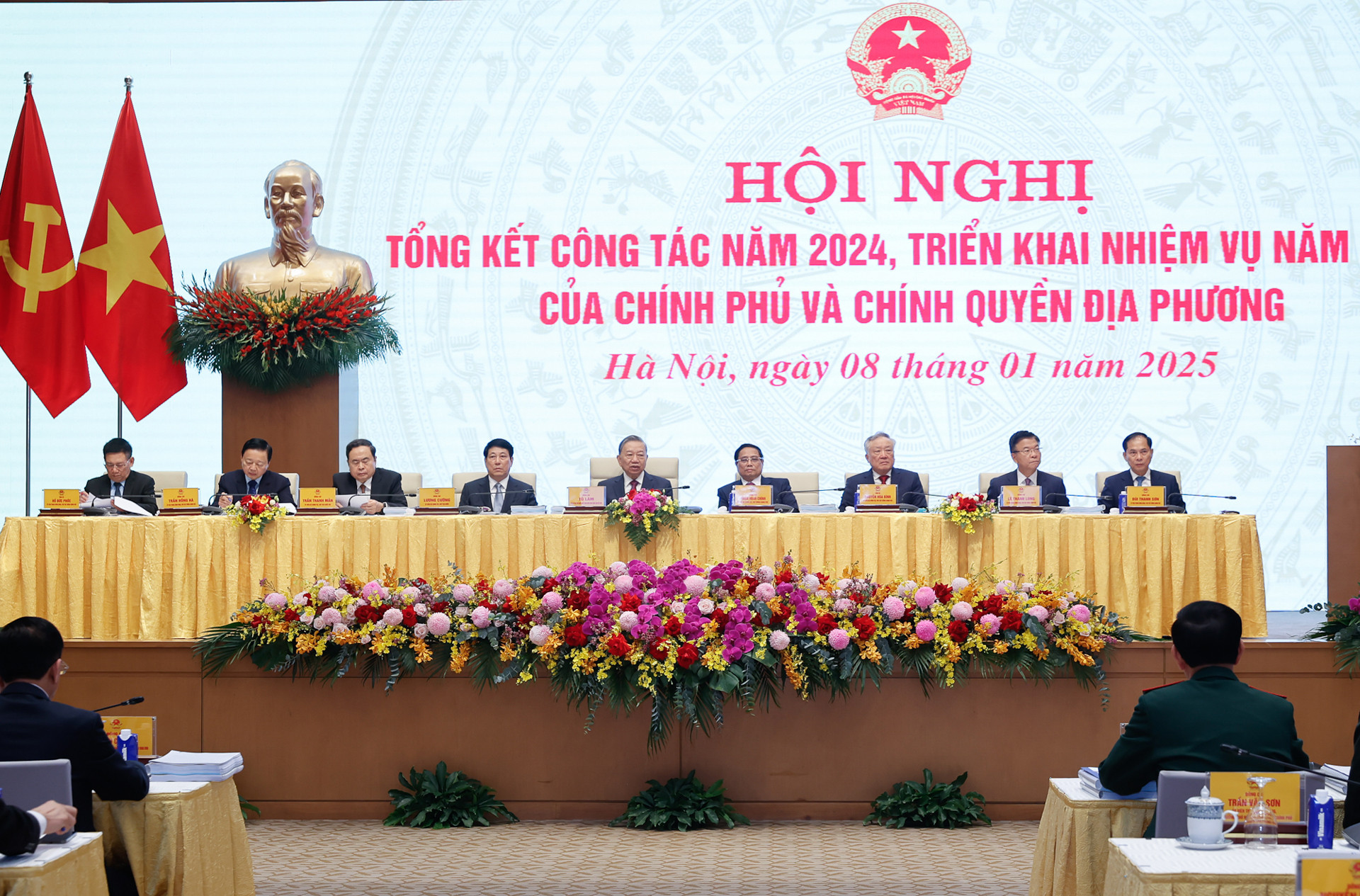
Speaking at the year-end conference on January 8, which summarized the 2024 governmental performance and outlined tasks for 2025, the Prime Minister emphasized the significance of the event.
He expressed his gratitude for the participation of high-ranking leaders, including General Secretary To Lam, who provided critical guidance.
The conference reviewed achievements in various sectors, noting considerable progress. Among these, GDP growth not only elevated Vietnam's economic scale and global ranking but also boosted per capita income and labor productivity.
The country surpassed its revenue targets by 337 trillion VND (approximately $14 billion USD), despite reductions in taxes, fees, and charges amounting to nearly 200 trillion VND ($8.3 billion USD).
Another highlight was Vietnam's improved happiness index, which climbed 11 positions to rank 54th among 143 countries and territories, as evaluated by the United Nations. The Prime Minister emphasized that the ultimate goal is to enhance citizens' well-being and prosperity.
Ambitious targets and reforms for 2025
Looking ahead, the government aims for at least 8% economic growth in 2025. This will involve revitalizing traditional growth drivers such as investment, consumption, and exports while fostering breakthroughs in emerging sectors, including digital transformation, green energy, semiconductor production, big data, and artificial intelligence.
The Prime Minister emphasized the importance of completing the review of Resolution 18 and advancing organizational reforms under the principles of efficiency, compactness, and functionality.
He stressed that immediate actions should address straightforward issues, while more complex challenges require consultation and approval from relevant authorities.
Reflecting on the restructuring of government agencies, the Prime Minister reiterated that reducing internal structures by 30% on average - up to 50% in some cases - has allowed for a leaner and more effective public service.
He also underscored the significance of implementing Resolution 57, likening it to the transformative "Khoan 10" policy in science, technology, and innovation.
The resolution aims to enhance Vietnam's competitiveness through a strategic focus on scientific and technological innovation and digital transformation.
Major infrastructure projects remain a top priority. By 2025, the government aims to complete 3,000 kilometers of highways and over 1,000 kilometers of coastal roads, alongside key milestones such as completing Long Thanh International Airport and expanding Tan Son Nhat and Noi Bai airports.
Plans also include initiating railway connections to China, advancing urban railway projects in Hanoi and Ho Chi Minh City, and finalizing feasibility studies for the North-South high-speed railway and the Ninh Thuan nuclear power plant.
The Prime Minister addressed recommendations from the conference, emphasizing the importance of decentralization coupled with resource allocation, improved execution capacity, and robust oversight.
He also called for the elimination of bureaucratic red tape and outdated approval mechanisms to enhance efficiency across government operations.
Quang Phong